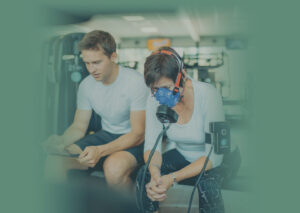Review of past waves of colds
Waves of colds are seasonal phenomena that occur particularly in the fall and winter months. During these times, the spread of cold viruses increases, leading to a rise in cases of illness. Symptoms of a cold can include cough, cold, sore throat, headache and general malaise.
As a rule, colds are unpleasant but not particularly threatening for most people. However, people with weakened immune systems, the elderly, and those with pre-existing conditions are at higher risk for complications that can lead to more serious health problems.
Infections, especially viral infections such as colds or flu, can in some cases last longer than in the past. There are several factors that could contribute to this change, including:
Corona pandemic: The unanimous opinion, even among experts, is that the nearly 2-year period of low human contact altered the adaptability of the immune system because it had fewer tasks to perform than usual.
Viral mutations: Viruses can mutate over time, resulting in altered strains. These mutations can cause infections to last longer or be more severe.
Antibiotic resistance: Antibiotic resistance can occur in bacterial infections, which means traditional antibiotics may not be as effective as before. As a result, treatment may take longer or be less effective.
Immunodeficiency and pre-existing conditions: People with weakened immune systems due to pre-existing conditions or other factors may go through infections longer because their bodies may need more time to fight the virus or bacteria.
Environmental factors: Deteriorating environmental conditions, such as air pollution or increased exposure to harmful substances, can stress the immune system and delay recovery from infections.
An individualized approach, taking into account specific health conditions and lifestyle habits, is critical to holistically stabilize the immune system and effectively fight infections.
Strengthening the immune system
There are various measures to strengthen the immune system and thus be better protected against colds:
1. Healthy diet: A diet that is tailored to you and your body helps to strengthen the immune system. By understanding your metabolism better, you can have a targeted influence and adapt your diet to your prerequisites in order to reduce further risks and improve your health.
2. Regular exercise: Numerous studies have shown that continuous and pulse-controlled exercise stimulates and strengthens our immune system. Calm, aerobic (oxygen-saturated) exercise in particular activates certain immune cells that fight pathogens and have anti-inflammatory properties. The result? An improved immune system that can better respond to challenges.
3. Stress management: Stress can weaken the immune system. With us, you will learn how to better manage stress and increase your relaxation skills and resilience through the core topics of individualized exercise & nutrition.
4. Sufficient sleep: Good sleep is crucial for a strong immune system and essential for overall recovery. Adults should typically get seven to nine hours of sleep per night. By exercising at the right pulse and intensity levels, melatonin levels undergo positive adjustments, making our sleep deeper and longer.
5. Hygiene: Good hand hygiene, regular hand washing and avoiding close contact with sick people can help prevent the spread of cold viruses.







